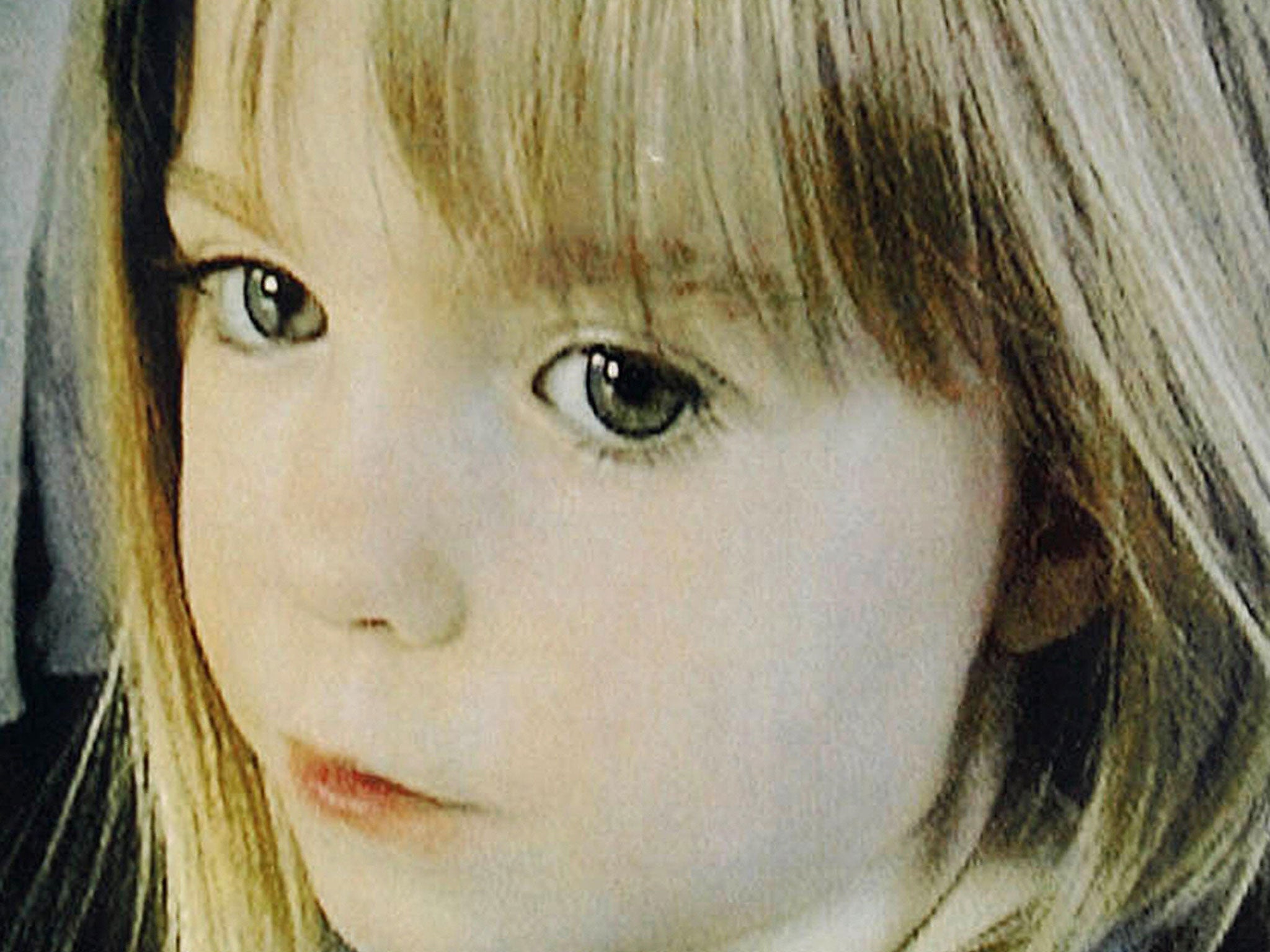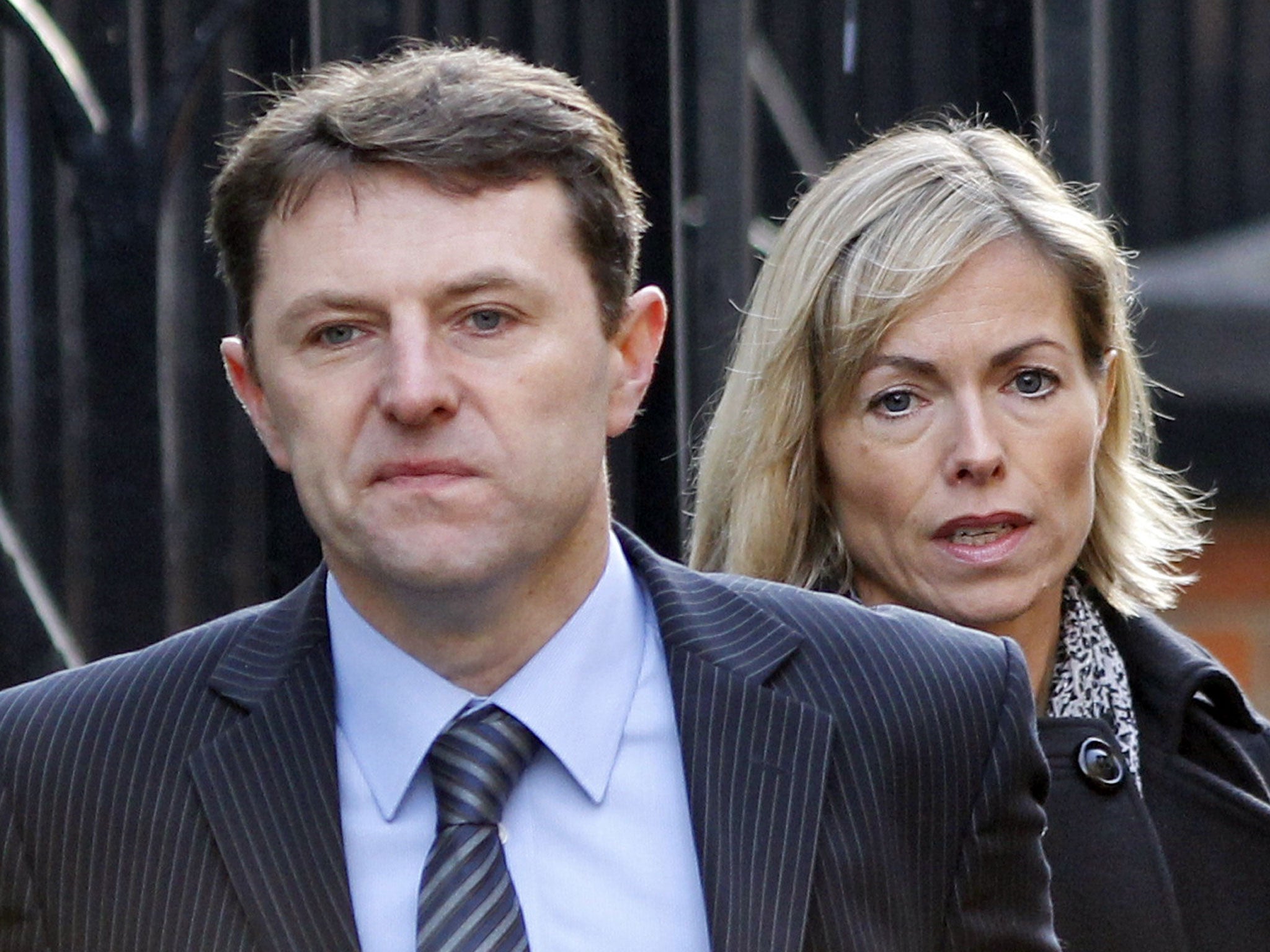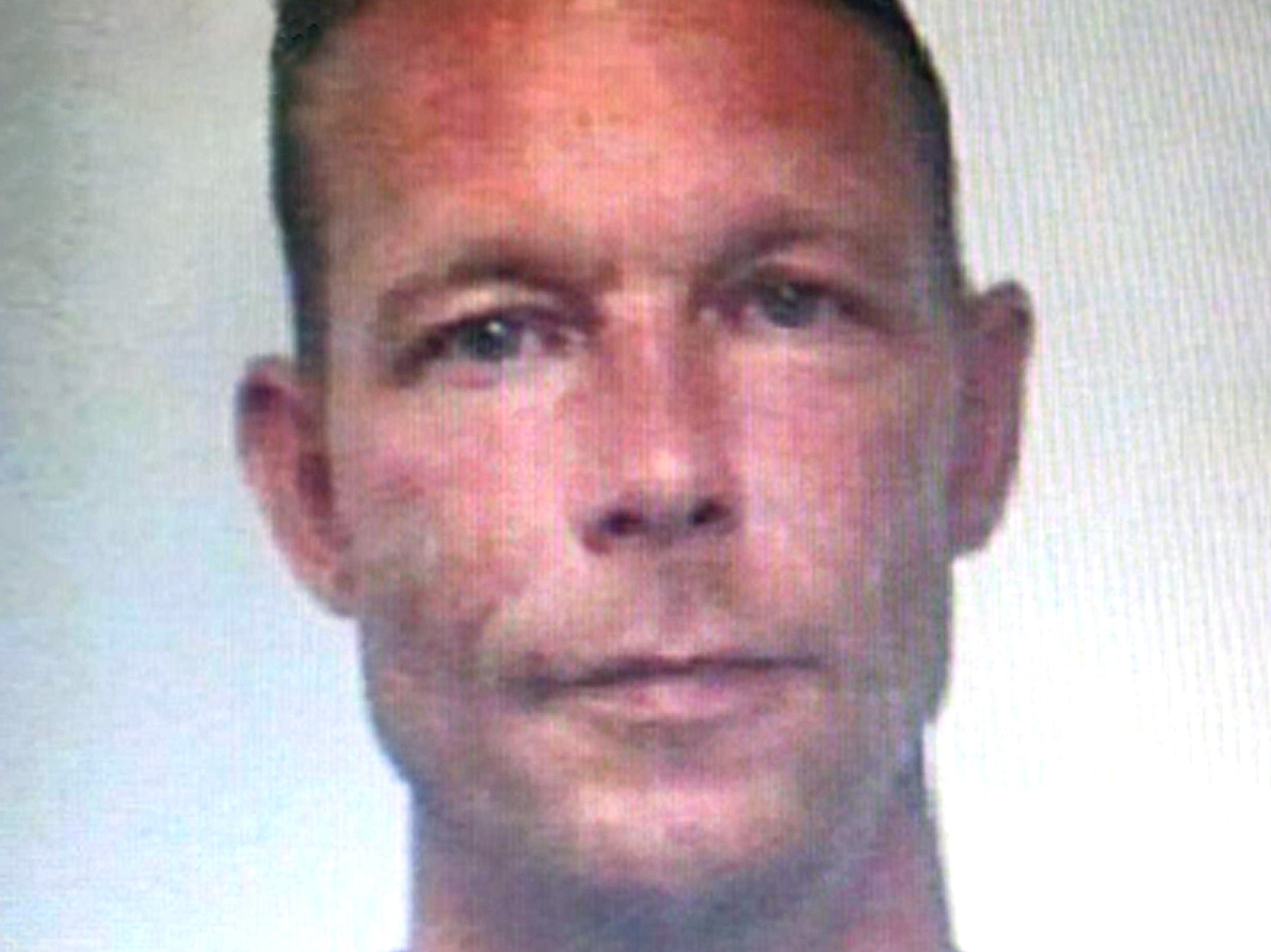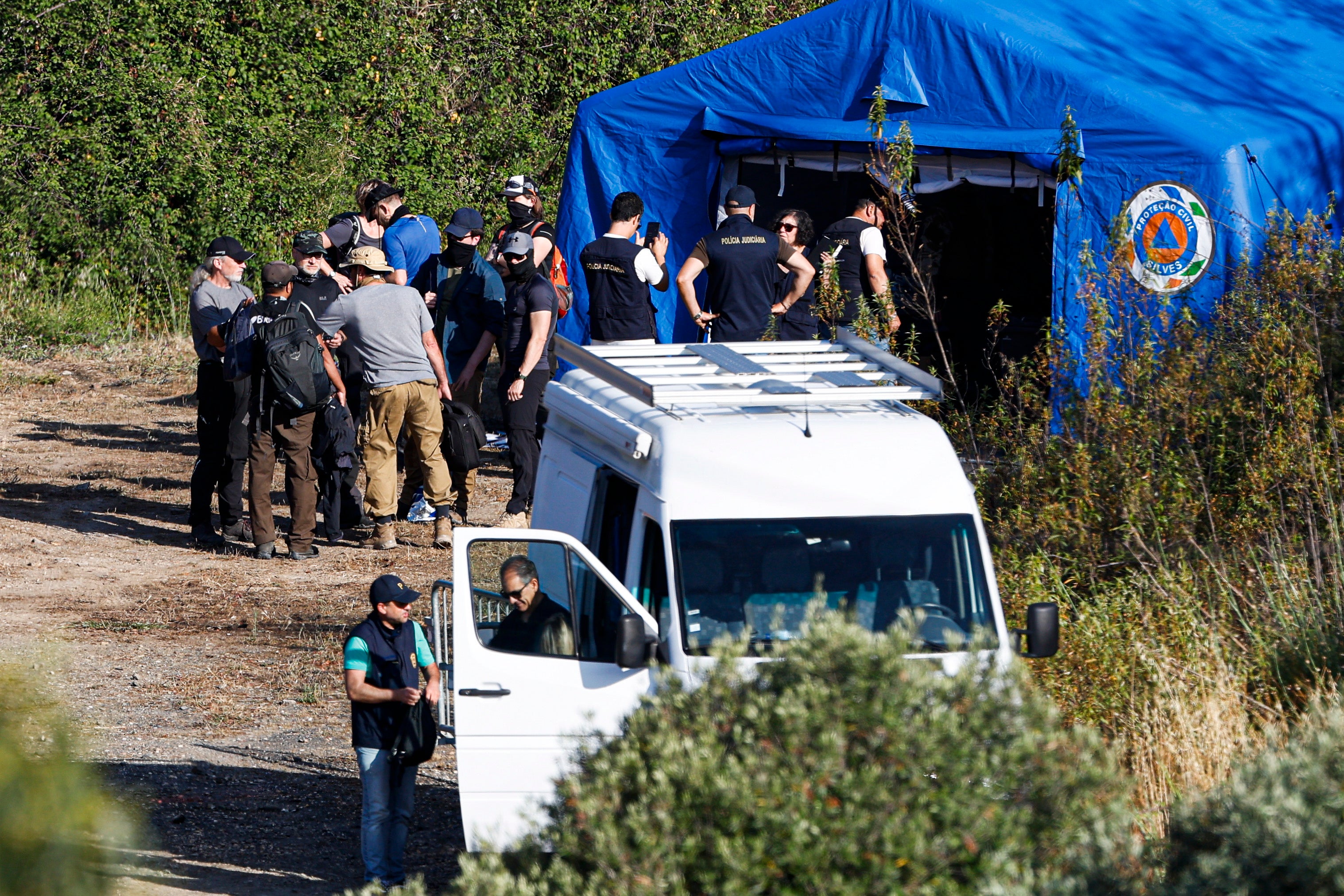Madeleine McCann case: Timeline of the missing child’s disappearance
Kate and Gerry McCann’s eldest daughter vanished from Portuguese holiday resort 16 years ago but emergence of new suspect has brought fresh hope of answers and closure
Your support helps us to tell the story
From reproductive rights to climate change to Big Tech, The Independent is on the ground when the story is developing. Whether it's investigating the financials of Elon Musk's pro-Trump PAC or producing our latest documentary, 'The A Word', which shines a light on the American women fighting for reproductive rights, we know how important it is to parse out the facts from the messaging.
At such a critical moment in US history, we need reporters on the ground. Your donation allows us to keep sending journalists to speak to both sides of the story.
The Independent is trusted by Americans across the entire political spectrum. And unlike many other quality news outlets, we choose not to lock Americans out of our reporting and analysis with paywalls. We believe quality journalism should be available to everyone, paid for by those who can afford it.
Your support makes all the difference.Madeleine McCann, a three-year-old girl from Rothley, Leicestershire, was reported missing from the Portuguese holiday resort of Praia da Luz on the Algarve on 3 May 2007, a case still unsolved and still the subject of intense interest among the public and press.
Her parents, Kate McCann and Gerry McCann, posted a statement on the Find Madeleine website on 3 May 2023 marking the latest anniversary of their daughter’s disappearance, reiterating their hopes of being reunited with her one day and posting a poem, “The Contradiction” by Clare Pollard, to express their feelings.
“Today marks the 16th anniversary of Madeleine’s abduction. Still missing... still very much missed,” they wrote.
“The police investigation continues, and we await a breakthrough. Thank you to everyone for your support – it really helps.”
Portuguese police have now reportedly apologised to the parents of Madeleine McCann for the way detectives investigated the case and treated the family.
Here is a reminder of the events of the case.
The story began when the McCanns – affluent doctors Kate and Gerry, their three-year-old daughter Madeleine and her two-year-old twin siblings Amelia and Sean – joined a group of seven family friends and their five children on holiday at the Ocean Club in the village of Praia da Luz on the southwestern tip of Portugal on 28 April 2007.
After a pleasant spring break by the sea, the adults in the party went out for dinner at the resort’s open-air tapas bar on 3 May, gathering at 8.30pm. The children were left behind sleeping in their respective apartments with the doors unlocked and a rota system in place among the parents to ensure that someone returned every half-hour to check on them.
When Kate McCann took her turn and returned to her apartment at 10pm, she raced back to the restaurant screaming “Madeleine’s gone! Someone’s taken her!” The police were quickly called and 60 staff and fellow guests searched the complex, calling out the girl’s name in vain until daybreak the following morning.
Border police and airport staff were put on alert and hundreds of volunteers joined the efforts to find the missing girl over the coming days, the case fast becoming a sensation.
The Portuguese authorities would later attract criticism over their conduct in the crucial earliest hours of the investigation when the trail might still have been warm, accused of making rudimentary mistakes like failing to conduct a house-by-house search of every local residence or interview all of the other guests at the resort, acting slowly to erect roadblocks and potentially compromising forensic evidence at the crime scene.

The police initially stated that they believed Madeleine was still alive and had been abducted from the room by a stranger as the parents described their “anguish and despair” over her vanishing, a worst fear realised for any parent.
On 26 May, police issued a description of a suspicious man seen on the night of the girl’s disappearance. The individual in question was spotted by Jane Tanner, one of the McCanns’ dining companions, who said she had seen a Mediterranean man with dark hair and beige trousers carrying a child close to the apartment when she went to check in on her own children. Scotland Yard would later come to dismiss the sighting as a red herring.
The search continued as the summer progressed amid a wild media circus and with huge fundraising activities underway, the McCanns setting up Madeleine’s Fund on 15 May to raise cash to support further investigation and keep the profile of the case high, attracting generous donations from celebrities like Richard Branson, Simon Cowell, JK Rowling and Coleen Rooney. By 30 May, the case was such a cause celebre that they were being flown out to meet the Pope at the Vatican in Sir Phillip Green’s Learjet.
A local man, Robert Murat, subsequently became its first suspect and had his house and car searched, his swimming pool drained and his electronic devices confiscated but no evidence was found to link him to Madeleine and the matter was soon dropped.
By June, the Portuguese police admitted that they had failed to protect potentially useful evidence at the scene as frustration with the lack of developments grew and the media began to question whether the McCanns themselves had been involved in the matter.
Lurid tabloid allegations suggested the couple and their friends might have been swingers and that the McCanns, as physicians, might have been in the habit of sedating their children, while others claimed inconsistencies in their version of events.
The intensity of the hostility towards the parents would later be described by Roy Greenslade of The Guardian as “no journalistic accident, but a sustained campaign of vitriol against a grief-stricken family”, singling out The Daily Express and Daily Star for particular condemnation.
In July, assistance offered by former South African police officer Danie Krugel – who claimed his handheld “matter orientation system” could help to find Madeleine – was rubbished, while British police sent over two springer spaniel sniffer dogs to search for DNA.

Relations with the local authorities would ultimately sour as the latter came to resent British intrusion into a Portuguese inquiry, according to Anthony Summers and Robbyn Swan’s book Looking for Madeleine (2014).
By August, Madeleine has been missing for 100 days and police admitted for the first time that she may never be found. They also told the McCanns that they were no longer considering the matter an abduction case but, rather, a murder inquiry.
The McCanns themselves were interviewed as “arguidos” (suspects) by Portuguese police in September, with the parents told that the dogs had discovered DNA evidence from the missing girl in the boot of their holiday rental car, lines of inquiry that had already been leaked to the British press. They vehemently denied having any part in her disappearance.
Despite being listed as suspects (a designation that would linger until the following July), the McCanns were allowed to return to Britain on 9 September.
A day later, chief inspector Tavares de Almeida of the Policia Judiciaria in Portimao signed a nine-page report concluding that Madeleine McCann had died in their apartment as a result of an accident, that the tapas dinner and rota checks on the McCann children had been part of a planned cover-up, that the family’s friends had helped to mislead the police and that the McCanns had concealed the body and then faked an abduction. A public prosecutor subsequently applied for the confiscation of Kate McCann’s diary and Gerry McCann’s laptop plus the group’s phone records.
On 2 October, chief inspector Goncalo Amaral was removed from the case and transferred after alleging that the British police were only interested in pursuing leads favourable to the McCanns. He would later publish a book, Maddie: The Truth of the Lie, the following summer, resulting in a lengthy libel battle with the McCanns that would run back and forth through the courts until March 2017.
Back in Britain, Gerry McCann issued a video that November in which he speculated that his family had been watched by a “predator” during their stay at Praia da Luz. His wife had come to believe that a potential perpetrator could have seen a note in the resort’s guest book visible to all in reception noting their dining arrangements on the evening of Madeleine’s disappearance. The couple followed up on 20 January 2008 by releasing a sketch of a “creepy man” they said other holidaymakers had said they had seen loitering at the Ocean Club.
In April, a month before the one-year anniversary of the fateful night, Portuguese police travelled to Leicestershire to conduct further interviews with the McCanns’ friends.
Then, on 21 July, Portugal’s attorney general, Fernando Jose Pinto Monteiro, announced that there was no evidence to link either the McCanns or Robert Murat to the disappearance and closed the case, unsolved.
With the trail cold and no closure in sight, the McCanns continued to publicise their cause, issuing computer-generated images of how Madeleine might look now that she had aged on 3 November 2009 and condemning the release of previously unseen Portuguese police files – detailing possible sightings of their daughter – to British newspapers in March 2010.
The McCanns published a book of their own about their ordeal in May 2011, entitled simply Madeleine, which was serialised in The Sun as the newspaper led a campaign calling on British prime minister David Cameron to launch a new inquiry. He did so.
Commenced by then-home secretary Theresa May, the Metropolitan Police’s Operation Grange would be led by commander Simon Foy and comprise a team of three detective inspectors, five detective sergeants, 19 detective constables and six civilian staff.
It began to yield results in 2013, with Scotland Yard formally announcing a new investigation in July and saying in October it had identified 41 potential suspects. That same month, BBC Crimewatch released an e-fit image of a man of particular interest who had been seen in Praia da Luz with a child matching Madeleine’s description in May 2007.
Detectives arrived in Portugal in January 2014 promising new arrests and finally searched the village in June, interviewing four people the following month but without unearthing new information. The quartet would be definitively ruled out in April 2017, before the UK government said it would continue to fund the investigation until 2020, having already admitted it had cost £10m in its first four years of operation.
That investment had enabled detectives to have tens of thousands of documents translated, investigate over 8,000 potential sightings, take 1,338 statements, collect 1,027 exhibits and investigate 650 sex offenders and 60 persons of interest, all without definitively establishing the truth.
The Madeline McCann case lay dormant before suddenly exploding into life in June 2020 when German media revealed that Christian Brueckner, a 43-year-old prisoner with a track record of child abuse and drug trafficking, had been identified as a new suspect by the public prosecutor of the German city of Braunschweig.

He had reportedly been living in a Volkswagen camper van in the Algarve at the time of Madeleine’s disappearance and one woman has since come forward to suggest she saw a girl that might have been Madeleine speaking German in a supermarket in Portugal in 2017.
German investigators classified their probe into his movements as a murder inquiry, saying they were working on the assumption that Madeleine is dead and reporting in July 2021 that they had found an abandoned cellar beneath his former allotment near Hanover where she could, theoretically, have been held captive.
Hans Christian Wolters, the prosecutor leading the investigation into Brueckner, has said he was “very confident” the inmate is responsible for kidnapping her.
“If you knew the evidence we had you would come to the same conclusion as I do but I can’t give you details because we don’t want the accused to know what we have on him – these are tactical considerations,” he told the BBC.
It was subsequently revealed that Madeleine’s Fund still had £773,629 to spend as of 31 March 2020, meaning the McCanns can continue to bankroll a private investigation to find their daughter long after the police hunt is finally drawn to a close, should they choose to.
Brueckner was formally made a “arguido” in relation to the case on 21 April 2022.
On 19 September, the McCanns lost their libel case against Mr Amaral, the former chief inspector who had investigated the disappearance, before the European Court of Human Rights.
The couple had attempted to argue that Mr Amaral was responsible for damaging their reputation and breaching their rights to respect for their private life and to be presumed innocent after taking exception to his book and associated media appearances in which he had repeatedly suggested they were responsible for the vanishing.
Their complaint also argued that Portugal’s Supreme Court had failed to allow them proper redress over the alleged libel by Mr Amaral after judges threw out their earlier claim in 2017.
The verdict left the McCanns with three months to appeal against the decision.
In February 2023, a Polish woman called Julia Faustyna made headlines by claiming she was Madeleine, using the Instagram name @iammadeleinemccann.
Ms Faustyna, 21, did not provide any supporting evidence but sought DNA tests to prove her origins. The results ultimately revealed that she was entirely of Polish origin, with no British heritage, disproving her claims for good.
In April 2023, a court in Braunschweig dropped a rape charge against Brueckner, unrelated to the Madeleine McCann case, concluding it did not have jurisdiction.
Police in Germany continue to claim they have “concrete evidence” that Madeleine is dead but this has still not been confirmed and their investigation is ongoing, with Brueckner still not charged in the McCann case.

Like her parents, Madeleine’s sister Amelie, now 18, observed the 16th anniversary of her disappearance in May 2023.
Speaking publicly for the first time at a prayer meeting in Rothley, she said: “It’s nice that everyone is here together but it’s a sad occasion.”
Amelie McCann reportedly joined in with chants including “Never never give up”, “leave no stone unturned”, “don’t forget about me” and “still missing, still missed”.
Later that month, the case unexpectedly lurched back into life in when investigators launched a major search operation at a reservoir in the Algarve, with Mr Wolters saying they were acting on “certain tips” from Brueckner, whom the prosecutor said he remains “very confident” holds the key to Madeleine’s disappearance.
With help from Portuguese police and with Scotland Yard detectives watching on, German investigators carried out a thorough examination of the Barragem do Arade beauty spot in Silves.
They combed the shoreline and surrounding grasslands with sniffer dogs, rakes, spades and pickaxes and inspected the water in a rigid-hull inflatable boat. A no-fly zone was put in place in the skies overhead to allow police drones to survey the region undisturbed.
The site is located approximately 30 miles northeast of the Ocean Club resort, from which the missing girl first disappeared.
In their most recent update, the investigators said they were comparing soil samples from the reservoir with others taken from Brueckner’s VW camper van in an attempt to establish for certain that he was in the area during the timeframe of interest in order to try to “close the net” around him.
Subscribe to Independent Premium to bookmark this article
Want to bookmark your favourite articles and stories to read or reference later? Start your Independent Premium subscription today.

